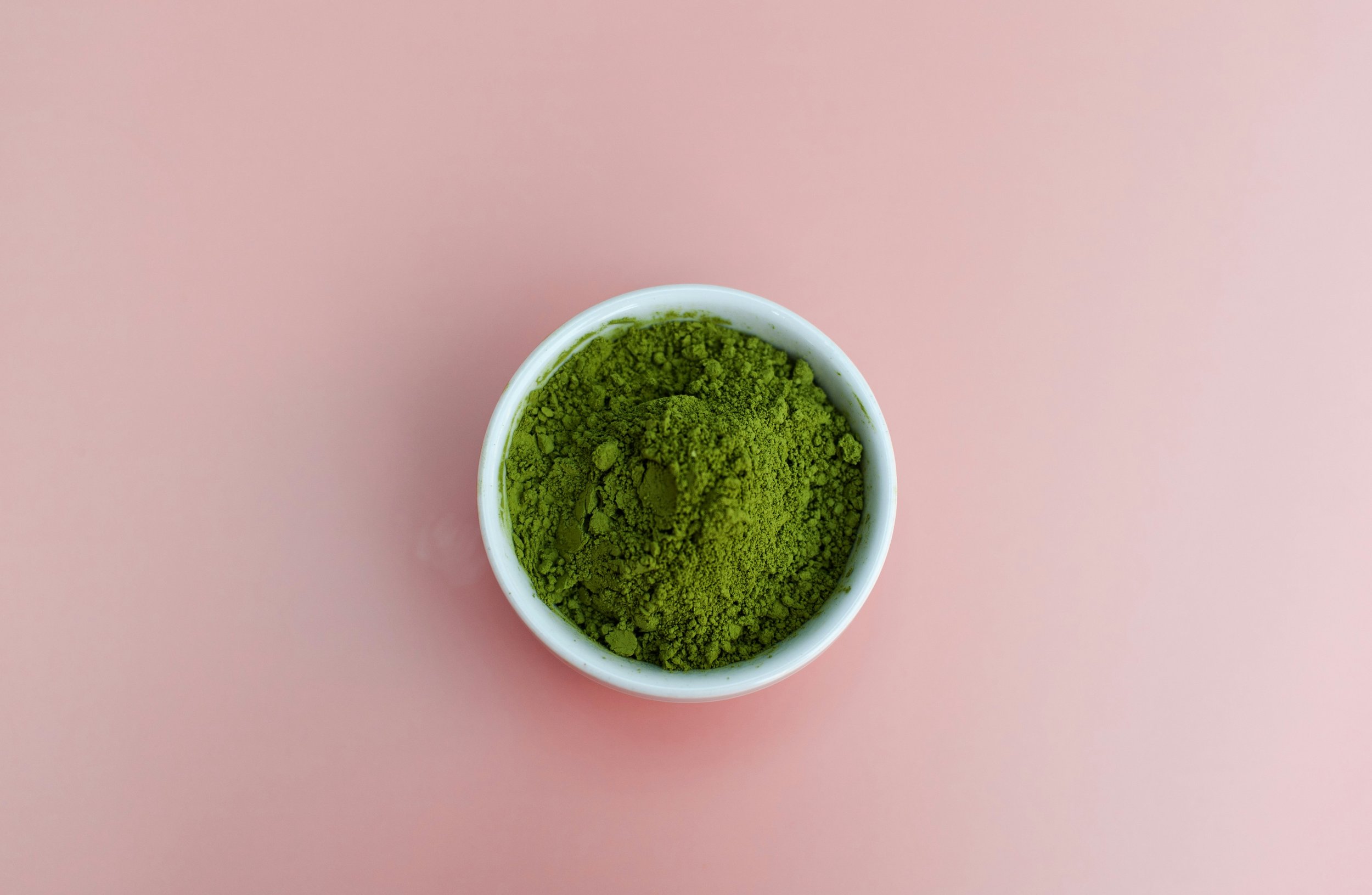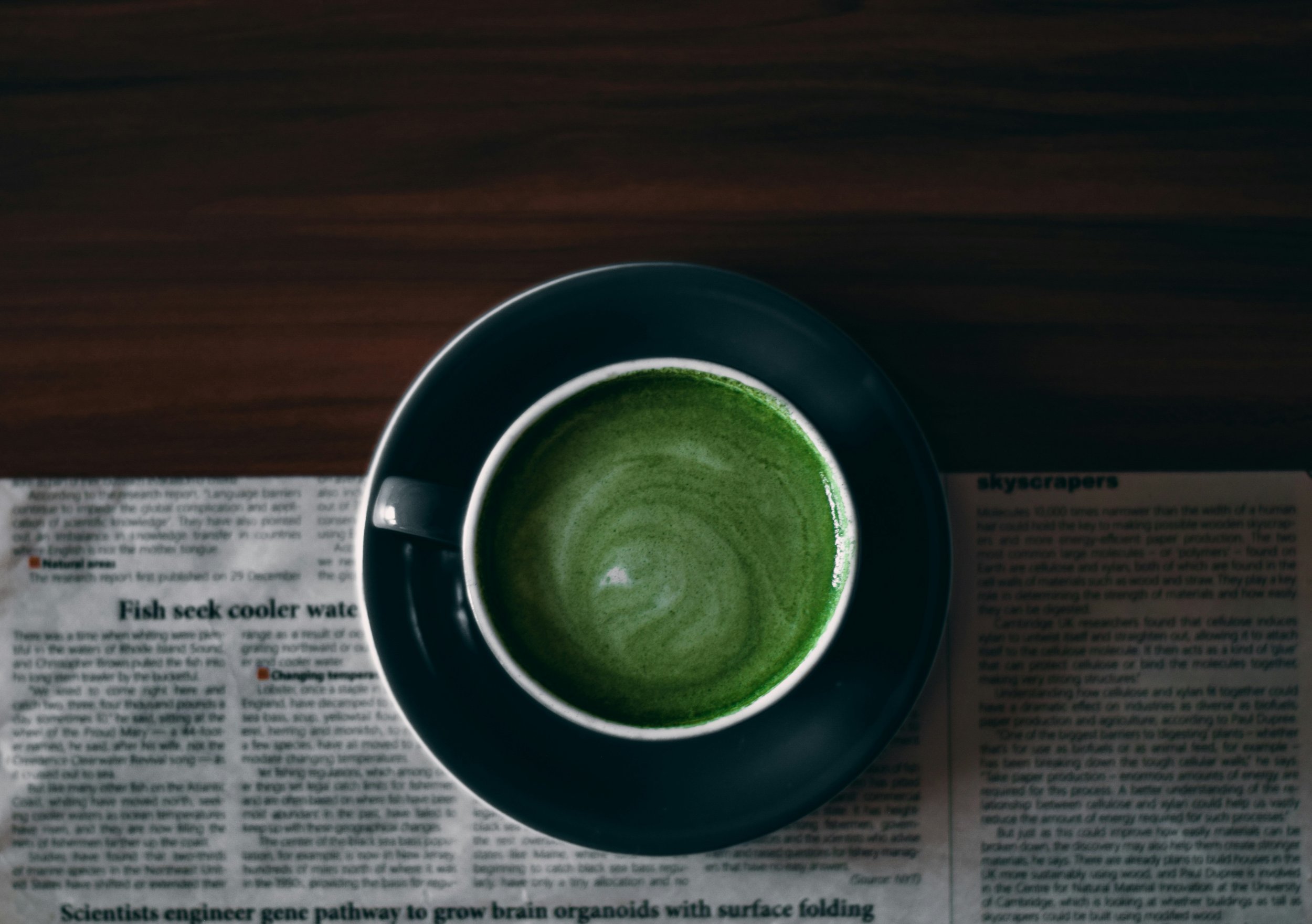The Surprising Benefits of Drinking Matcha
Image credit: Unsplash
Updated June 2025
Matcha is everywhere – its vibrant, green hue is all over social media and café menus. From the early 2000s to the end of 2023, Japan’s tea exports grew from 1% to around 10% of their entire production. But, this ancient powdered green tea is more than a colorful trend. There are unique physical and mental benefits to drinking matcha regularly.
What is Matcha?
Matcha is made up of high-grade green tea leaves ground into a powdered form. While matcha originated in China, it became popular through Japanese culture. Matcha is grown in the shade in a controlled environment, which gives it an umami flavor. A traditional matcha is prepared by adding hot water and whisking until it creates a bright green foam.
What Are the Health Benefits of Drinking Matcha?
Like traditional green tea, matcha is full of valuable nutrients. But, matcha may have even more health benefits because it consists of the whole tea leaf. If you routinely drink matcha, you may experience some of these advantages.
Matcha May Improve Energy Levels
While matcha does have caffeine, it also contains L-theanine. L-theanine is an amino acid that calms the body by slowing the release of caffeine into your system. Unlike coffee, this offers a more sustainable energy boost and less “jitters.”
Full of Antioxidants
Matcha is rich in antioxidants, including epigallocatechin gallate (EGCG), which research has shown to support immunity and cellular health. Results from a 2018 study on mice suggest that matcha may turn on certain brain receptors linked to dopamine and serotonin.
Could Support Cardiovascular Health
Matcha could help lower the risk of cardiovascular disease. Matcha contains catechins, a type of antioxidant, that may help protect your heart. This could include reducing inflammation, preventing plaque buildup, and lowering the risk of heart problems like heart attacks.
Image credit: Unsplash
How Matcha’s Quality Impacts Its Benefits
It’s important to note that not all matcha is created equal. Like with coffee beans, quality matters. Matcha is grown only in Japan, and each region and growing method can affect its flavor profile and nutrient density.
Whether you’re in line at a café or are browsing endless brands of matcha, there are several things to keep in mind. A primary giveaway of matcha quality is its color. If matcha isn’t processed or stored correctly, matcha can appear a dull color, leading to a bitter taste. Matcha should be a rich green color and without any additives – like sugar – for the best flavor and full health benefits.
For drinking, it’s recommended to choose a ceremonial grade matcha. Ceremonial grade matcha is higher quality and designed for traditional Japanese tea ceremonies.
Is Matcha Right For You?
While matcha doesn’t necessarily have to replace your morning cup of coffee, it’s worth giving it a try. Enjoy matcha as a latte by adding your favorite milk or a strawberry syrup to add a depth of flavor. If anything, explore an increasingly popular drink to see if it’s your cup of tea.

